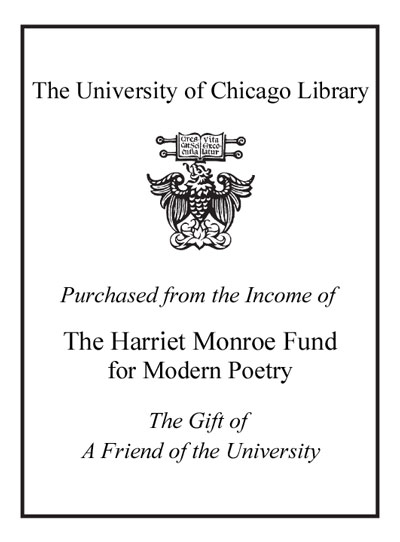Review by Publisher's Weekly Review
Born in Odessa, Kaminsky came to this country in 1993 at the age of 15 when his family was granted asylum by the U.S. government. At the start of his impressive debut (which he wrote in English), he reveals an astounding truth: "My secret: at the age of four I became deaf. When I lost my hearing, I began to see voices." With a buoyant, tragicomic vision, the poet depicts a frenetic, anti-Semitic Russia where people dance on the surfaces of grief, as in a Chagall painting: "naked in her galoshes she waltzed/ and even her cat waltzed./ She said: All that is musical in us is memory'--but I did not know English, I danced/ sitting down." Other notable dancers are Kaminsky's mother, his Aunt Rose, and his grandmother, alongside the tortured poets of modern Russia, including Anna Akhmatova, Osip Mandelstam, Marina Tsvetaeva, and Joseph Brodsky. Rooted in Russian symbolism, Kaminsky's language is at once rich and simple: "We lived north of the future, days opened/ letters with a child's signature, a raspberry, a page of sky." His poems move through the lives of others, known and unknown, connecting the sweet and bitter stories of lost worlds. For all collections of contemporary poetry.--E.M. Kaufman, Dewey Ballantine LLP Law Lib., New York (c) Copyright PWxyz, LLC. All rights reserved All rights reserved.
(c) Copyright PWxyz, LLC. All rights reserved
Review by Library Journal Review
Born in Odessa, Kaminsky came to this country in 1993 at the age of 15 when his family was granted asylum by the U.S. government. At the start of his impressive debut (which he wrote in English), he reveals an astounding truth: "My secret: at the age of four I became deaf. When I lost my hearing, I began to see voices." With a buoyant, tragicomic vision, the poet depicts a frenetic, anti-Semitic Russia where people dance on the surfaces of grief, as in a Chagall painting: "naked in her galoshes she waltzed/ and even her cat waltzed./ She said: All that is musical in us is memory' but I did not know English, I danced/ sitting down." Other notable dancers are Kaminsky's mother, his Aunt Rose, and his grandmother, alongside the tortured poets of modern Russia, including Anna Akhmatova, Osip Mandelstam, Marina Tsvetaeva, and Joseph Brodsky. Rooted in Russian symbolism, Kaminsky's language is at once rich and simple: "We lived north of the future, days opened/ letters with a child's signature, a raspberry, a page of sky." His poems move through the lives of others, known and unknown, connecting the sweet and bitter stories of lost worlds. For all collections of contemporary poetry. E.M. Kaufman, Dewey Ballantine LLP Law Lib., New York (c) Copyright 2010. Library Journals LLC, a wholly owned subsidiary of Media Source, Inc. No redistribution permitted.
(c) Copyright Library Journals LLC, a wholly owned subsidiary of Media Source, Inc. No redistribution permitted.
Review by Publisher's Weekly Review
Review by Library Journal Review

